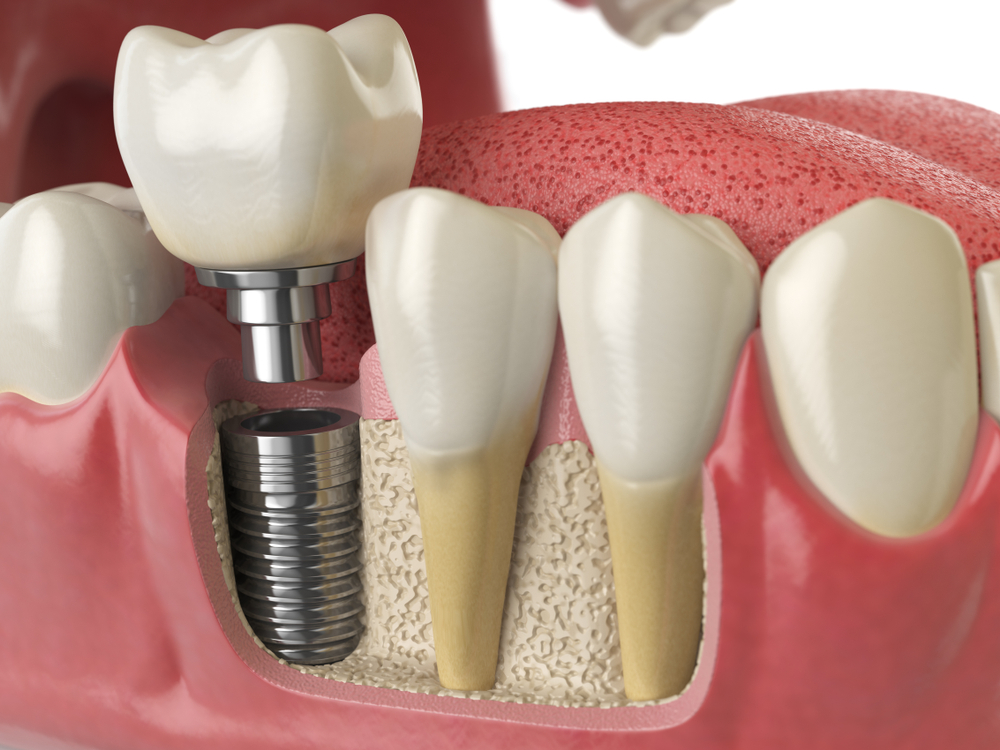Factors that Can Influence Dental Implant Success Rates
Usually, dental implant treatment in Whitby has an extremely high success rate. Most studies show a long-term success rate of 95% or higher. However, some factors can affect the success of your dental implants, and these generally fall into three categories. These include overall health concerns, local factors relating to the implant site, and maintenance problems.
It is crucial to have a proper consultation with a dental implant dentist who has gone to the trouble of completing additional training and who has lots of experience in placing a wide range of dental implant systems. Here at Durham Dental Solutions, we take extensive care when considering anyone for dental implant treatment. Often, determining if someone is a good candidate greatly reduces the risk of failure.
How General Health Problems Can Affect Implant Success
There are general health problems that can influence the success of implant treatment. These include factors such as smoking or using certain drugs, having a compromised immune system, osteoporosis, or radiation treatment. This is why when you come to see a dental implant dentist in Ajax, we will want to discuss your medical history with you. It’s important to make sure we have all the relevant information so we can make an informed decision about your suitability for treatment.
Local Factors Relating to the Implant Site
Dental implants are affected by the bone quality and quantity, and by the initial stability of the implant at the time of placement. It’s also important to assess the amount of stress placed on the implants, for example, if you happen to clench or grind your teeth. Although dental implants in Oshawa are very strong, they may fail if placed under excessive force and especially while the implants are still healing.
Maintenance Problems
Dental implants do need routine maintenance, and it’s important to be vigilant about their care. They must be cleaned every day following the instructions provided by our dental implant dentist in Newcastle, and you must have regular checkups and cleanings. Without a good daily oral hygiene routine and ongoing professional care, there’s a real risk your implants could fail. Whenever you visit us for your regular checkups, we can assess the health of your dental implants and will clean them professionally using specialized tools. If needed, we can replace worn components.
How Can I Tell If an Implant Is Failing?
If you do have an implant problem and think it might be failing, there are usually some easy to spot symptoms. A healthy dental implant should feel exactly like a real tooth, but if it is failing, it may be painful, or the implant site may have begun to bleed. You could notice the gum around the implant looks infected and inflamed or that the gum has receded, so the implant post is visible. Also, it’s possible for an implant to become loose. If your dental implant has taken a knock, it’s probably worth having it checked.
What Is the Biggest Reason for Implant Failure?
One of the main reasons why implants fail is because of poor oral care. Just like your real teeth, dental implants can be affected by a disease that is very similar to gum disease and which is called peri-implantitis. This affects the gum and jawbone around the implant, gradually destroying it, so gums recede, and implants become loose. Peri-implantitis is treatable as an experienced dental implant dentist in Clarington can carefully remove the infection, allowing the gum and bone around the implant to heal more easily. There are also advanced treatments available to restore bone and gum tissue destroyed by peri-implantitis.
If you do think your dental implant is failing or is infected, see a dental implant dentist in Brooklin as soon as you can.


